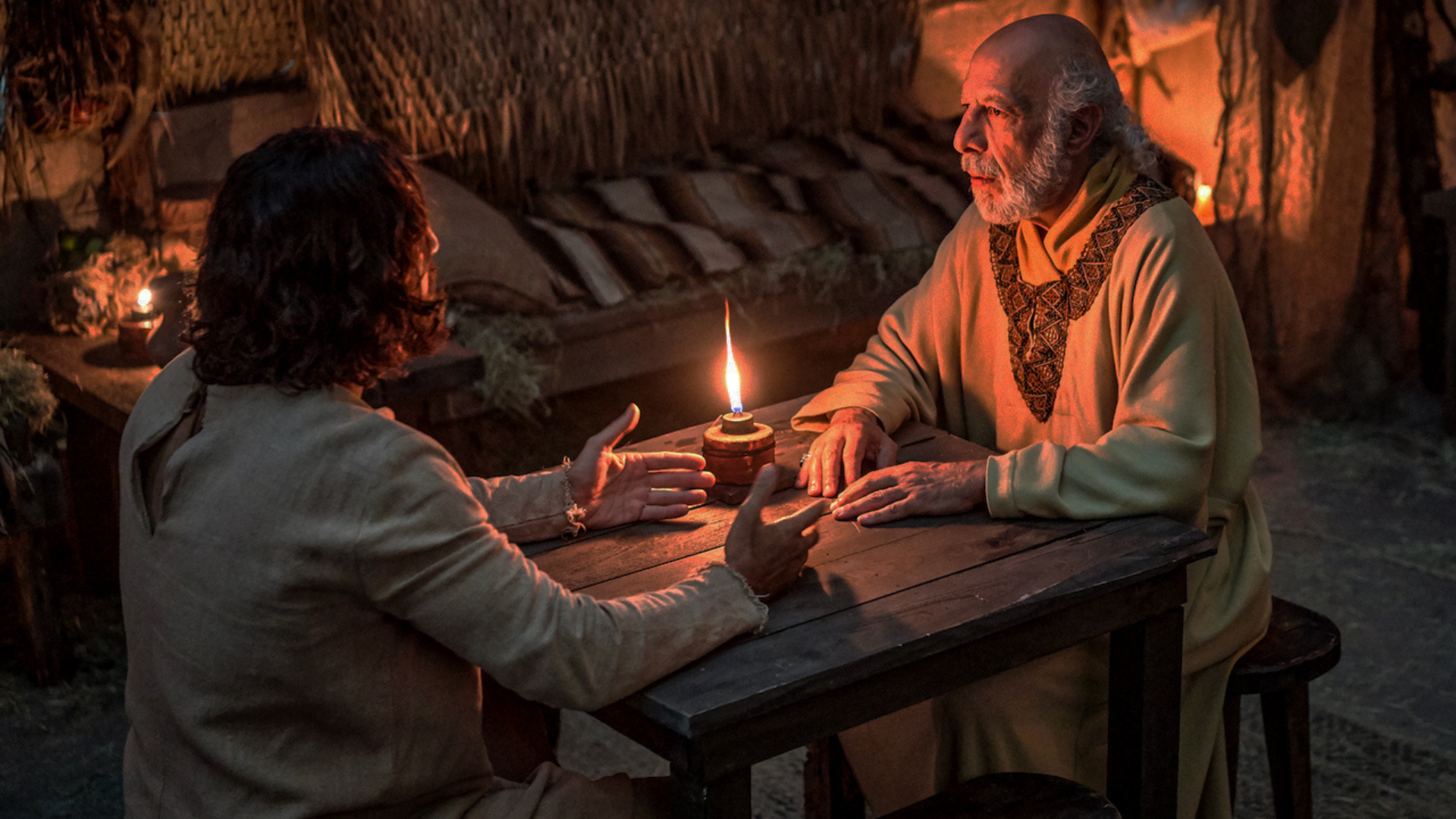If you’re a student living in NSW, you would have done at least 2 Rapid Antigen Tests by now, supposing you’ve been following the local government’s recommendation for school goers to swab themselves twice weekly.
Since our society is required to live with Covid, self-testing with RAT kits has become and will continue to be an additional new normal to the future. In the beginning, thousands of people joined the RAT race due to the lack of stocks. Despite the exorbitant price tag, many were still willing to purchase it, in anticipation of the symptoms appearing on them, therefore needing to get tested, isolate, and take some medication or vitamins to recover.
Whilst it is significant to check our physical health during this pandemic, there is one most important thing that we often neglect to check- that is ‘our spiritual health.’
Have we checked our spiritual health recently? How do we check it? How can we make it healthier?
As we willingly swab our noses twice a week for the benefit of our physical health, we also need to regularly check our spiritual health with the same urgency and willingness, for it will cost us our eternity.
Acknowledge Our Disease
Indwelling SIN is the universal disease found in each and every one of us that is responsible for our spiritual deformity. It is so common that none of us is spared from it. To make it clear: ALL OF US has this disease. However, many refuse to acknowledge this truth or, rather, do not realise that they have the disease. Thus they live with it instead of trying hard to fight it.
This situation is especially true for us who call ourselves Christians. We often think that we are better than the people out there. In reality, we are just as corrupted.
We might say, ‘I go to church regularly, I listen to the weekly sermon attentively, I even take notes during the sermon and never skip my teen connect group discussions.’ By doing all these things, can we say that we have a clean bill of spiritual health? What was inside our heart and mind when doing all those things? What prompted us, and what motivation did we have for doing those things?
We already know our sly enemy is always on the work to deceive us with its crafty tricks, making us think otherwise. Be very wary of the subtle sins we have. Humble ourselves and ask God to open up our spiritual eyes so that we can clearly see all of our sins as how our holy God sees it. Only then can we see the depth of damage it has caused us.
Examine Our Spiritual Health
The Word of God is the only reference needed to examine our spiritual health. It is the highest standard, with 100% precision, that can tell us the severity of our spiritual conditions. The Bible is like a clear mirror that will show us where the disease of sin is lurking.
Here I would like to suggest three guiding questions to kick off our self-examination.
- Do we love our God more & hate our sin more each day?
God has given us the greatest and first commandment in Matthew 22:37.
“You shall love the Lord your God with all your heart and with all your soul and with all your mind.”
When we say we love our God, we should do it with everything we are. He should be on the throne in our heart, be in charge of our soul and occupy our minds. Everything must align together. We can’t claim to love God by stuffing our souls and minds with worldly things. We can’t compartmentalize ourselves for God and for the world. With that, we should have denied our fleshly desires and hated our sins more.
- Do we strive to live a holy life?
The Bible has told us to make every effort to be holy as without holiness, we will not see the Lord (Hebrew 12:14).
Many of us Christians may seem to be living a holy life… on the surface. We’re going to church and doing all the right things, and we might even receive some compliments for being ‘good teens’ compared to many others out there. However, many of us may not be striving to actualize and cultivate the gospel we learn into our daily lives and live a holy life.
Despite all the misconceptions about holiness within our generation, the greatest joy that we can ever find in this world is through obeying and following the laws of God; and living in holiness with Him. Once we accept Christ, the Holy Spirit works in our hearts to regenerate and sanctify us, and holiness is a fruit that comes naturally after.
Living a holy life does not mean we never sin or that we can 100% follow God’s law without fail, but it is learning to love what God loves (hate what God hates) and doing his laws with a joyful heart.
- Do we bear fruits of the Spirit?
“But the fruit of the Spirit is love, joy, peace, forbearance, kindness, goodness, faithfulness, gentleness and self-control,” (Galatians 5:22-23b ESV)
Another way to examine our spiritual health is by observing the fruits we produce in our lives; particularly the fruits of the Spirit. Essentially, when we develop a deeper personal relationship with God, we go through the process of sanctification, and our lives are changed to be more Christlike. These fruits of the Spirit will emerge in our lives as our character and outlook change.
- Love – do we love others as God calls us to?
- Joy – do we feel joy when we follow God and do his commandments?
- Peace – do we feel true peace in Christ?
- Forbearance (i.e. patience) – Do we exercise patience when meeting hard people or circumstances?
- Kindness and goodness- Do we show kindness to others?
- Faithfulness – Do we faithfully follow God in any life circumstances?
- Gentleness – Do we display the ‘spirit of gentleness’ (Galatians 6:1) and humility?
- Self-control – Are we able to say ‘no’ to our fleshly desires?
Take Action For a Life-Long Recovery
So what was your diagnosis? Was it a good one?
Mine is a far cry from ‘good’, and I assume many of you share my result.
When we are placed under the microscope of the Bible and illuminated by the bright light of God’s holiness, no one can escape. However, the Bible is not given to condemn us for falling short. It is there to show us the truth and guide us to come closer to our heavenly Father.
During our time on this earth, we need to go through a life-long process of progressive sanctification every single day. It can often be so painful, but this process is necessary for our recovery.
When we have an intimate personal relationship with God, we will grow in our love of the Lord, and we will learn how to mortify our sins and reject our worldly desires. It is only through a union with Christ, that we will be sanctified and transformed into a new creation. He will enable us to love holiness more and to walk in the path of obedience. All these things can only be obtained by praying and meditating on God’s Word daily.
“How can a young man keep his way pure? By guarding it according to your word.”
Psalm 119:9
Next, to commit ourselves into the recovery process of spiritual health, we can start doing these things:
- Constantly praying and studying God’s Word.
This is the most important; the first step that we cannot skip.
- Fellowship
Initiating fellowship, and having a group of teenagers that we can have fellowship with will help to strengthen our spiritual health, and also give us a support system. True fellowship happens on the basis of a spiritual relation, and being one in Christ. In fellowship, we can share our lives and our struggles with others, and we can hold one another accountable. We can look out for one another, lovingly point out one anothers’ ‘symptoms’, and especially support and pray for those spiritually weak.
- Ministry
Serving within the church allows us to humble ourselves to serve God, and to evangelize God’s truth to others out there who are yet to hear it. Within ministry, we may also have fellowship with our fellow brothers and sisters in Christ, and we can learn how to expand our talents to be used for God’s glory. Our faith is strengthened through the hardships and trials we face, and we learn to reject worldly pleasures and walk in obedience.
So as we enter this school year, I encourage us all to not only keep checking our physical health but, most importantly, to check on our spiritual health against God’s Word more regularly. May we all experience spiritual growth and start (or continue) on the life-long journey of spiritual recovery.

Joanne Soviner (14) is one of the writers and designers for RE Generation-Z. She strives to share God’s love and grace she has received and the truth she is learning with other teens. She enjoys dancing, bullet journalling, and learning new languages.








